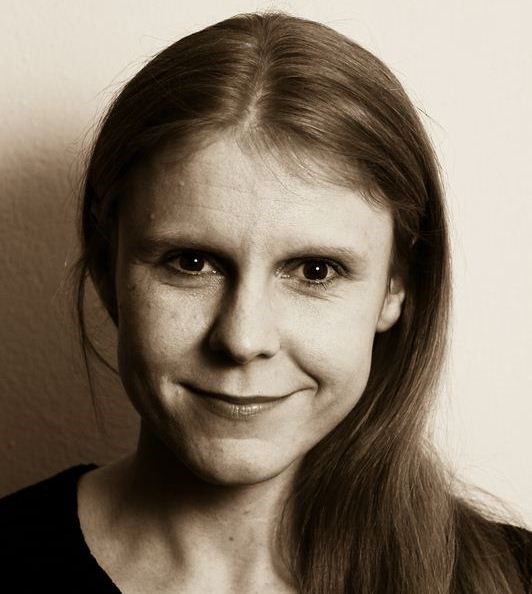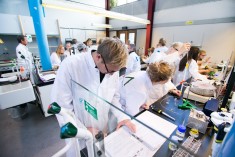The international dimension of the food of the future
At the Department of Food Science, internationalisation is not only an add-on, but is truly a part of the study environment for both students and researchers. Collaborating at all levels with Nordic and international partners helps UCPH FOOD find solutions to ensure that food production contributes to positive social development in a globalised world in the future.
At the Department of Food Science (UCPH FOOD), students carry out hands-on study activities that help solve the global challenges posed by feeding the world in the future. The food of the future will go far beyond what you can expect to find in your local deli. The study environment is international to ensure that UCPH FOOD students adopt a global mindset.
The food arena is global
 “An international study and research environment is a strength at UCPH FOOD. We have students and researchers from around the world, and we use this actively in our teaching, so the students learn to approach food, food production, and consumers from different perspectives. The food arena is global, and an international mindset is a strong asset”, says Head of Studies, Annemarie Olsen.
“An international study and research environment is a strength at UCPH FOOD. We have students and researchers from around the world, and we use this actively in our teaching, so the students learn to approach food, food production, and consumers from different perspectives. The food arena is global, and an international mindset is a strong asset”, says Head of Studies, Annemarie Olsen.
The very international study environment is also regarded as a strength by the students at UCPH FOOD. Megan Martell studies Food Innovation and Health, and she describes her study experience at UCPH as a ‘family’:
 “The current course consists of about 15 nationalities in a class of about 30 students. Maybe our course is unique, but within a couple of days, our class had already formed close bonds and literally everyone was included. We get together at dinner parties and other social gatherings, celebrate birthdays and culture-specific holidays, and meet together for lunch at the university. The environment here feels like being part of an international family.”
“The current course consists of about 15 nationalities in a class of about 30 students. Maybe our course is unique, but within a couple of days, our class had already formed close bonds and literally everyone was included. We get together at dinner parties and other social gatherings, celebrate birthdays and culture-specific holidays, and meet together for lunch at the university. The environment here feels like being part of an international family.”
Studying the future of food
Succeeding in creating an international study environment has much to do with making educational settings attractive for international students. One of the key features of the international courses at UCPH Food is their close ties to ongoing research. This could for example be introducing cephalopods (squid, octopus and cuttlefish) as an important food source or understanding how children like their food served.
Student Ezra Chomak, from the US, is interested in human nutrition and the entrepreneurship involved in the food business:

“I chose to study at UCPH specifically for the Master’s programme in Food Innovation & Health because I couldn't find another quite like it anywhere else in the world. Studying with staff that have conducted international research is essential for me, as it means I'm learning from those who have a more global outlook.”
Another key feature is having state of the art facilities for students and researchers. The new Future Consumer Lab (FCL) works with food science from a consumer perspective. The research contributes to sustainable development, which leads to improved public health, by linking consumer food preferences to the development of new foods. FCL has seven different laboratories, including a simulation laboratory where researchers use Virtual Reality to test different foods and meals.
Research at the Department of Food Science
The research at FOOD ranges from food microbiology, food chemistry, molecular and technological functionality and food processing technology to gastronomy, sensory quality and consumer perception. See all research fields here.

Master's degree programmes at UCPH
The University of Copenhagen offers a wide range of master's degree programmes taught in English. See all our programmes here or learn more about our Food Innovation and Health MSc programme below.

Meet us at: